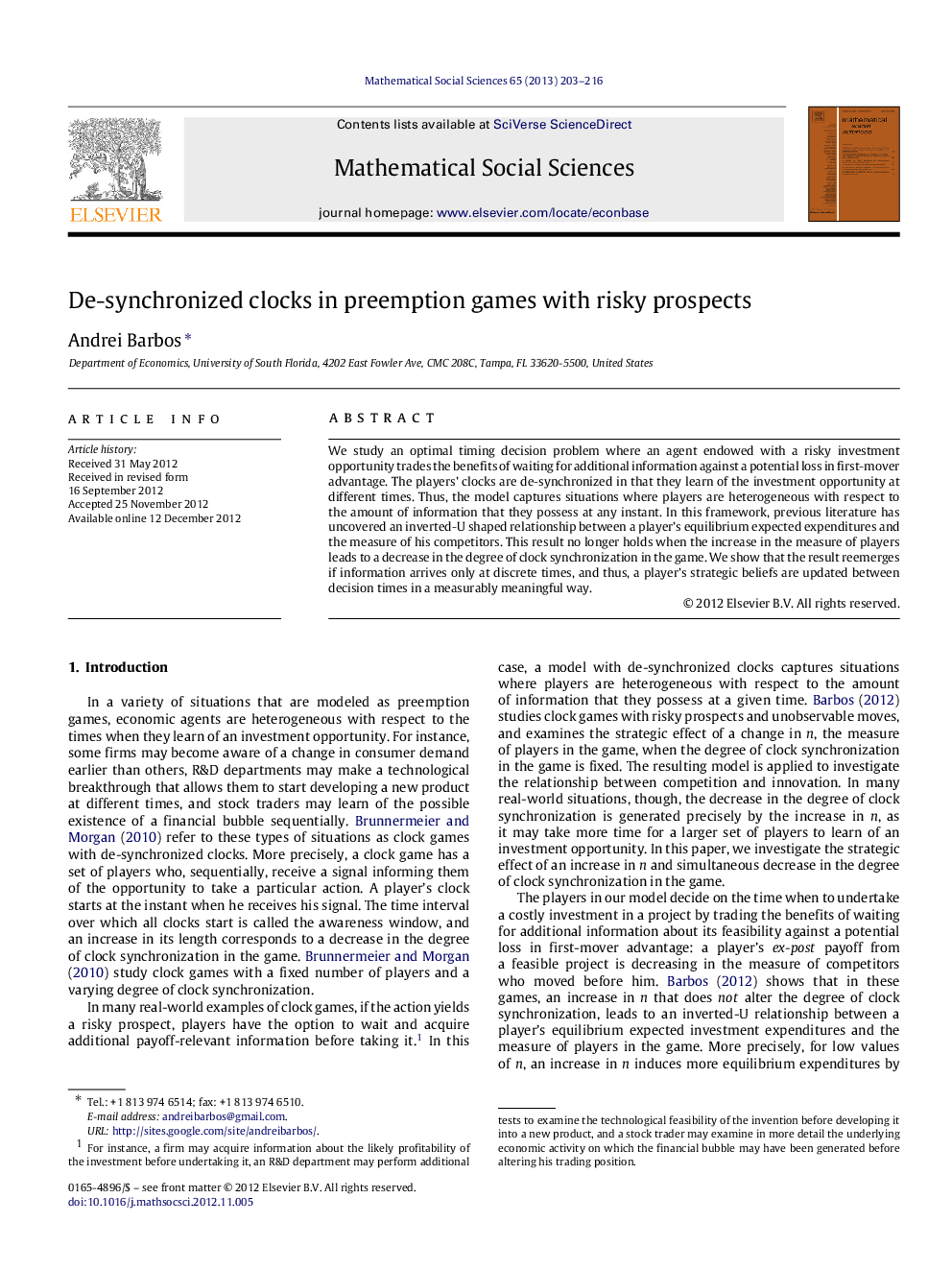| Article ID | Journal | Published Year | Pages | File Type |
|---|---|---|---|---|
| 972683 | Mathematical Social Sciences | 2013 | 14 Pages |
Abstract
⺠We consider an optimal timing decision problem with de-synchronized clocks. ⺠The agent trades waiting for information against a loss in first-mover advantage. ⺠An increase in the number of players leads to a non-monotonic strategic response. ⺠We examine the case when more players decrease the degree of clock synchronization. ⺠We identify the role of the discreteness of the information acquisition process.
Related Topics
Physical Sciences and Engineering
Mathematics
Applied Mathematics
Authors
Andrei Barbos,
